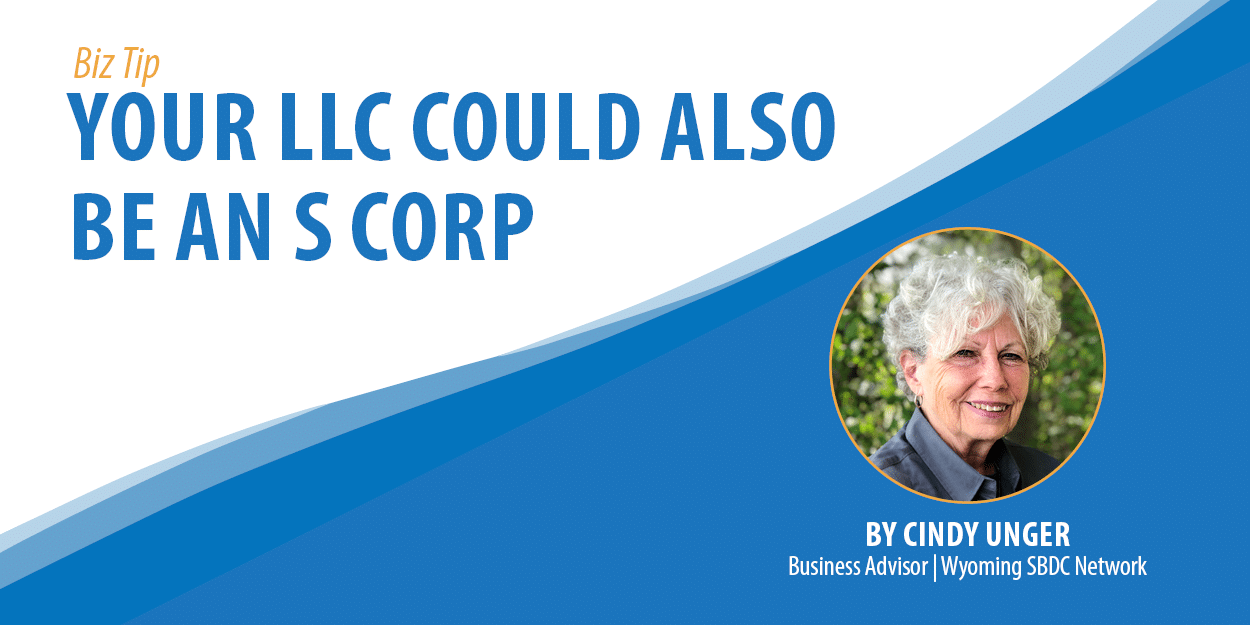You had no clue that one business could actually be both an LLC and an S Corp, did you? Let me explain further…
What is an LLC?
A Limited Liability Company (LLC) is a legal entity formed under state law to operate a business. This form of organization is easy and inexpensive to create and operate and provides the personal liability protection of a corporation, coupled with the tax efficiencies and operational flexibility of a sole proprietorship or partnership. A single person limited liability company will automatically be treated by the IRS as a “disregarded entity,” i.e. a sole proprietorship. An LLC with two or more members will automatically be treated as a partnership and be taxed under Subchapter K of the Internal Revenue Code. Most LLCs automatically stay with their default form of taxation, but there are alternatives that may be advantageous, depending on your particular business situation.
The member (owner/partner) of an LLC is not an “employee” of the LLC for tax purposes and does not receive a paycheck with payroll taxes deducted and Social Security and Medicare taxes partially paid by the company. The member takes his/her salary out as a “draw.” They write themselves a full paycheck, with no deductions. That member is now responsible for paying Estimated Taxes to the IRS on a quarterly basis, consisting of estimated income tax, plus 100% of Social Security (12.4% up to earnings of $132,000) and Medicare taxes (2.9%, except for high earning individuals).
This situation is not a bad as it appears. Instead of your employer calculating social security contributions on the basis of 100% of your salary, as a self-employed individual, you only pay on 92.35% of net profit. In addition, half of the Social Security tax you paid is considered as the employer’s matching portion of the tax and is a deductible business expense. The “catch” is that, if there is profit left in the LLC business bank account at the end of the fiscal year, those funds are no different from money that you have already drawn personally from the business. As a member/owner, you will be required to pay income tax, Social Security and Medicare taxes on those funds.
What is an S Corp?
An ”S Corporation” (S Corp) is not a legal entity formed at the state level. An S Corp is a “tax entity,” created through an election with the IRS. Your business will be legally organized at the state level as either an LLC or a C Corporation. For tax purposes; however, you must file a special form (2553) with the IRS requesting S Corp status. Like an LLC, the S Corp is a “pass through” tax entity, not subject to double taxation like a C Corp. Any income, losses, credit or deductions will flow through to the owners (shareholders) and be reported and paid for on their personal tax return. There are certain restrictions of who can own an S Corp, but most small businesses will qualify.
An active S Corp owner who performs more than minor services for the company wears two hats. He/she is both a shareholder and an employee of the business. As an employee, the owner must be compensated for his/her services with a reasonable wage for that position and receive any other employee compensation the corporation typically provides. The company will pay one half of his/her Social Security and Medicare obligations. As a “shareholder” any profits remaining in the company at the end of the year can be distributed to the owners as a dividend, and dividends are not subject to employment taxes.
Be aware that, as an S Corp, you will have to run payroll, file quarterly federal payroll returns, keep accurate books and a balance sheet, be responsible for paying state and federal unemployment insurance and state workers’ comp, and file a corporate tax return.
Things to Consider
Why elect tax status for your LLC, as opposed to simply filing as a corporation and electing S Corp status? An S Corp typically has greater regulation of company procedures than an LLC. They probably will be responsible for holding required meetings and keep minutes, create and follow by-laws, deal with stock transfers, etc. Also, voting rights in an S Corp must match financial contributions. An LLC has fewer formalities, can have unlimited members, and voting rights can be decided through your operating agreement.
You can have the advantages of the simplicity and ease of operation of an LLC, combined with the tax advantages of an S corp. If a start-up has employees or plans to hire employees within the first year of operation and has the expectation of large profits, I typically recommend the LLC/S Corp organization. An LLC must request S Corp status by filing IRS Form 2253 within the first 2 months and 15 days of the tax year in which the election is to take effect. There are some exceptions, but timely filing will eliminate problems.
Contact your Wyoming SBDC Network advisor, tax advisor and/or attorney for additional information about LLCs and S Corps, as there are numerous additional details that are beyond the scope of this article.
About the Author: Cindy Unger has been with the Wyoming SBDC Network for over 18 years. She is a business advisor and also “moonlights” as the Database manager. Cindy has owned a number of small businesses throughout her career, including a fine dining restaurant and a want-ad newspaper. She has lots of enthusiasm and empathy for small, start-up businesses and loves helping them succeed. With an undergraduate degree in Retail Marketing and a graduate degree in Anthropology, research, planning and writing business plans are second nature to her.
When she’s not in the office, Cindy and her kayak can usually be found on any available body of water. If not paddling, she and her canine, Mr. Bogart, spend a lot of time wandering Casper’s Morad Dog Park.




